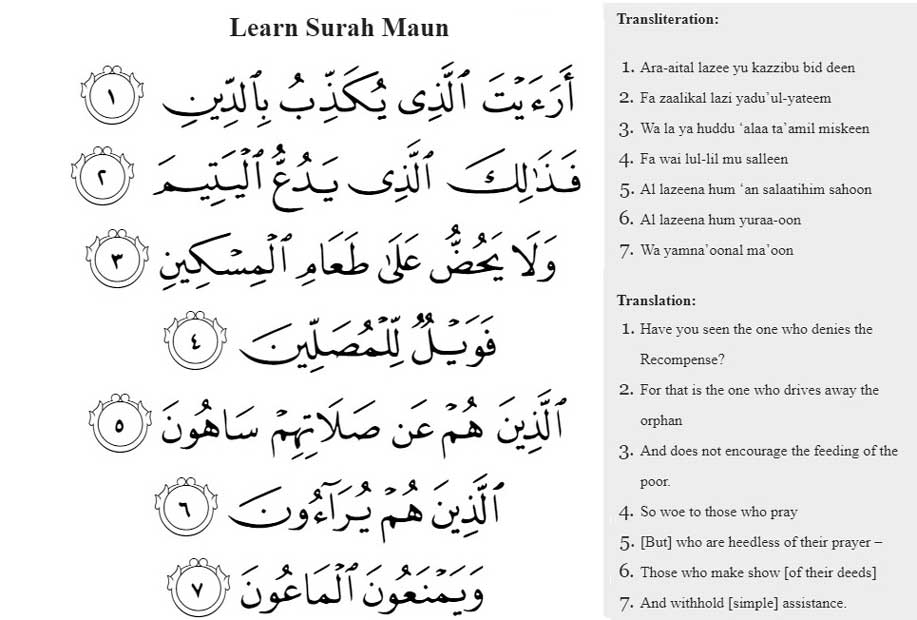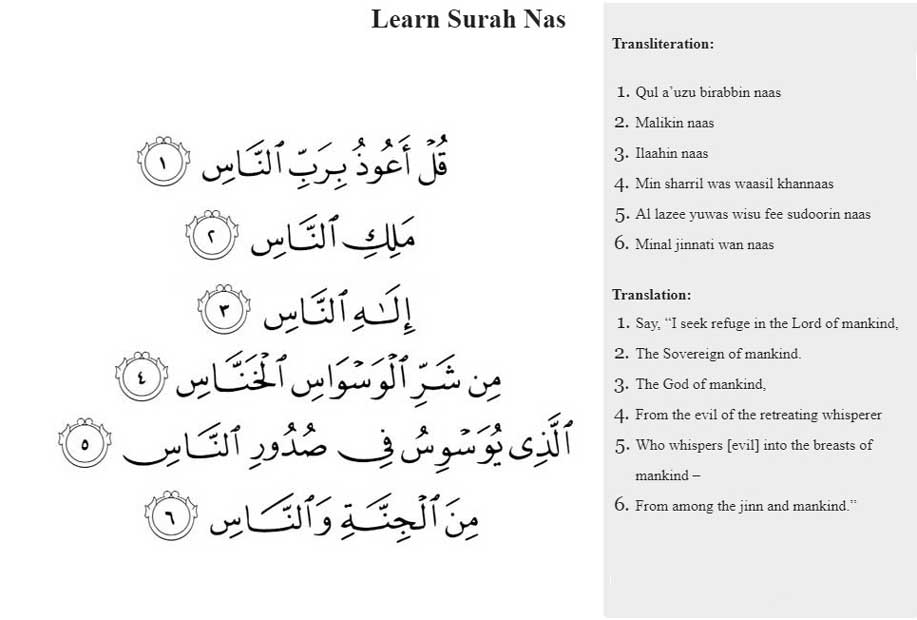The Quran, the holy book of Islam, is a tapestry of divine wisdom woven through 114 chapters known as surahs. Each surah holds a unique message, and among them, the last ten surahs, known as the “Muthawwifat” (meaning “the completed ones”), stand out as a remarkable culmination of divine revelations. These surahs, revealed during the final years of Prophet Muhammad’s (PBUH) life, carry profound significance for Muslims. In this article, we delve into the world of these final surahs, exploring their meaning, significance, and the unique characteristics that make them so special.

Image: davida.davivienda.com
Many Muslims find solace and guidance in these final surahs, which often speak about the realities of death, the Day of Judgment, and the importance of seeking forgiveness and salvation. The sheer beauty and the powerful verses within these surahs move hearts and offer a unique connection with the Divine. For those seeking a deeper understanding of the Quran’s final teachings, the Muthawwifat offer a roadmap to spiritual growth and introspection.
Exploring the Significance of the Muthawwifat
The last ten surahs hold a special position in the Quran due to their unique characteristics and the circumstances surrounding their revelation. They are often referred to as the “Muthawwifat” because they were revealed at a time when the Prophet Muhammad (PBUH) was nearing the end of his life. These surahs were revealed in Makkah, where the Prophet faced formidable challenges and hardships. Their focus on themes of faith, hope, and resilience resonated deeply with the early Muslims and continue to resonate even today.
Key Features of the Muthawwifat
These surahs are known for their distinctive features:
- Emphasis on the Oneness of God: The Muthawwifat forcefully reiterate the concept of Tawhid, emphasizing the absolute oneness of God and His sovereignty over all creation.
- Focus on the Day of Judgment: The theme of the Day of Judgment is a prominent aspect of these surahs, describing the accountability of all humans before God and the consequences of their actions.
- Call to Gratitude and Seeking Forgiveness: These surahs urge humanity to express gratitude to God for His countless blessings and to seek His forgiveness for their transgressions.
- Recitation and Reflection: The Muthawwifat emphasize the importance of reciting the Quran and reflecting upon its meaning. These surahs offer a profound message of hope and reassurance for those who seek spiritual guidance.
Understanding the Unique Content of the Last Ten Surahs
The Muthawwifat are not just a collection of verses, but rather a carefully crafted tapestry woven with divine threads. Each surah offers unique insights and teachings, and understanding their context is essential to grasping their full meaning.

Image: myislam.org
Surah Al-Nasr (Victory):
Surah Al-Nasr is a short yet powerful surah that speaks of the Prophet’s (PBUH) victory in spreading the message of Islam. It serves as a powerful reminder of the truth and triumphs of faith over adversity, offering hope and encouragement to all those who strive to follow the path of righteousness.
Surah Al-Lahab (The Burning):
Surah Al-Lahab focuses on the consequences of rejecting the message of Islam and the fate of the Prophet’s (PBUH) uncle, Abu Lahab, who vehemently opposed his message. It serves as a powerful warning against those who choose to deny the truth and stray away from the path of God.
Surah Al-Ikhlas (Purity):
Surah Al-Ikhlas is a short but profound statement of belief in the oneness of God. It speaks of the absolute purity and unicity of God, devoid of any partners or associates. It is often recited as a powerful reminder of the true nature of God and the importance of adhering to monotheism.
Surah Al-Falaq (The Daybreak):
Surah Al-Falaq is a supplication for protection from the evils of the night. This surah teaches us to seek refuge in God from all forms of harm, both physical and spiritual. Its recitation is considered a powerful shield against the negative influences that surround us.
Surah An-Nas (Mankind):
Surah An-Nas is another supplication, seeking protection from the whisperings of evil and the harmful influences of the unseen world. It serves as a reminder that we should always turn to God for refuge and protection from the temptations that surround us.
Surah Al-Quraysh (The Quraysh):
Surah Al-Quraysh focuses on the tribe of Quraysh, highlighting their role in the early days of Islam and the importance of giving thanks to God for their prosperity. It serves as a reminder that all fortune and success comes from God alone.
Surah Al-Ma’un (The Assistance):
Surah Al-Ma’un is a powerful reminder of the importance of showing compassion and helping the needy. It criticizes those who neglect the needs of the poor and the destitute, stressing the importance of extending a helping hand to those in need. It provides powerful insight into the true meaning of faith and its connection to practical actions.
Surah Al-Kauthar (The Abundance):
Surah Al-Kauthar offers a message of hope and reassurance for the Prophet (PBUH) amidst the challenges he faced. It promises him an abundance of good in this life and the next, reassuring him of God’s support and grace. It serves as an affirmation of the blessings that await those who persevere in their faith and spread the message of truth.
Surah Al-Kafirun (The Disbelievers):
Surah Al-Kafirun clearly states the difference between Islam and other faiths. It addresses the Prophet (PBUH) and his mission, urging him to maintain his belief in the one God and separate himself from the polytheistic beliefs of his time. It underscores the importance of holding steadfast in faith and rejecting falsehood.
Surah An-Nasr (Victory):
Surah An-Nasr is a short yet powerful surah that speaks of the Prophet’s (PBUH) victory in spreading the message of Islam. It serves as a powerful reminder of the truth and triumphs of faith over adversity, offering hope and encouragement to all those who strive to follow the path of righteousness.
Tips for Studying the Muthawwifat
The Muthawwifat are often recited together after each prayer to gain their blessings and seek divine protection. Here are some tips for studying these last ten surahs of the Quran:
- Seek Guidance from a Scholar: It is always beneficial to consult with a qualified Islamic scholar who can provide deeper insights and context. They can help you understand the intricacies of these surahs and their relevance to your life.
- Reflect on the Meaning: Don’t just recite the verses by rote. Take your time to reflect on the meaning and try to understand the messages they convey. Consider how those messages apply to your own life and your relationship with God.
- Engage in Dialogue: Discuss the surahs with other Muslims and share your understanding. This can enhance your comprehension and lead to a deeper appreciation of the divine wisdom contained within these verses.
FAQs about the Muthawwifat
Here are some frequently asked questions about the Muthawwifat:
Why are the last ten surahs called “the Completed Ones”?
The name “Muthawwifat” is interpreted as “completed” because they were the final revelations received by Prophet Muhammad (PBUH) before his death. They signify the completion of the divine message and offer a conclusive set of teachings for Muslims to follow.
Why are these surahs recited after each prayer?
Reciting the Muthawwifat after each prayer is a tradition that brings many blessings and protection. It signifies a commitment to seeking divine guidance and protection throughout the day. It is believed to bring peace, tranquility, and a stronger connection with the Divine.
What is the best way to memorize the Muthawwifat?
Memorizing the Muthawwifat requires patience, perseverance, and a focus on understanding the meaning. Break down the surahs into smaller sections, repeat them regularly, and use visualization techniques to aid in recollection. Remember, memorizing the Quran is a spiritual journey that requires dedication and a deep connection with the Divine.
Last Ten Surahs Of Quran Pdf
Conclusion
The last ten surahs of the Quran, the Muthawwifat, offer a unique opportunity for spiritual growth and connection with the Divine. They serve as a guide to living a righteous life, seeking forgiveness, and preparing for the Day of Judgment. By understanding their context, meaning, and significance, we can gain a deeper appreciation of the Quran’s powerful message and its enduring impact on Muslims around the world.
If you are looking to deepen your understanding of the Quran, I encourage you to explore the Muthawwifat. Are there any specific aspects of these surahs that you are curious about? I would be happy to answer any questions you may have.






